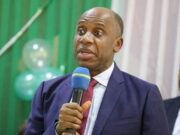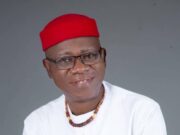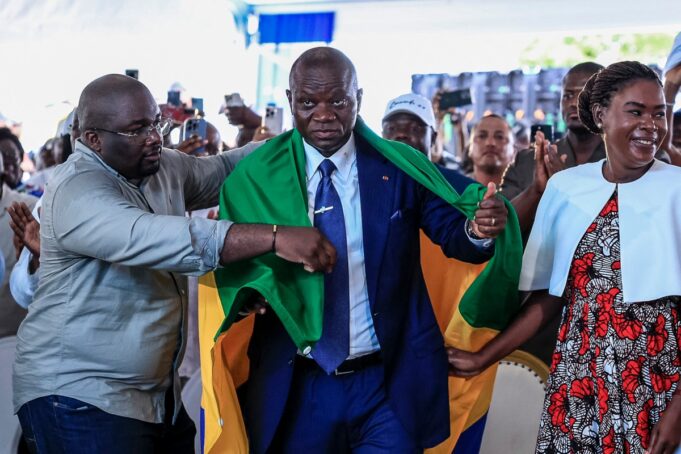Gabon’s transitional leader, Brice Oligui Nguema, has emerged victorious in the country’s presidential election, securing 90.35 percent of the vote, according to provisional results released by the interior ministry on Sunday, April 13, 2025.
Oligui, who seized power in August 2023 by ending over 50 years of Bongo family rule, had promised to guide the Central African nation back to democratic governance.
Saturday’s election marked a significant milestone as citizens turned out in large numbers—70.4 percent participation—to elect a new leader.
Unlike the unrest that followed Gabon’s previous elections in 2016 and 2023, the atmosphere in Libreville, the capital, remained calm after the vote.
State broadcaster Gabon 24 had earlier reported that Oligui held a strong lead in multiple provinces.
“I hadn’t voted in a long time, but this time, I saw a ray or something that made me go out and vote,” said 58-year-old Catholic Olivina Migombe as she headed to church on Sunday.
“I believe in change this time,” she added.
Oligui, who previously wore a general’s uniform, has made efforts to distance himself from his military image, contesting the election as a civilian seeking a seven-year term.
His main challenger, Alain-Claude Bilie By Nze—a former prime minister under ousted President Ali Bongo—garnered just 3.02 percent, while six other candidates failed to cross the 1 percent mark.
Although Oligui dominated the campaign, critics argue that his ties to the former regime have hindered genuine reforms.
Many citizens remain skeptical about whether he can steer Gabon away from its deep-rooted issues—ranging from poverty and poor infrastructure to mounting national debt—despite its abundant oil resources.
“I hope he works hard for the people,” said Patrick Essono-Mve, an unemployed 48-year-old technician on his way to mass.
The election, which was closely monitored by international observers, proceeded without major incidents.
For the first time, foreign and independent media were permitted to film ballot counts, adding a layer of transparency to the process.
Roughly 920,000 registered voters cast their ballots across 3,037 polling stations, including 96 located abroad.
Early results from CTRI News showed Oligui securing unanimous support at several locations, some reporting 100 percent of votes in his favor.
Oligui’s landslide victory ushers in a new chapter for Gabon, but the weight of expectations now rests on his shoulders as the nation watches to see if true change will follow the polls.

















